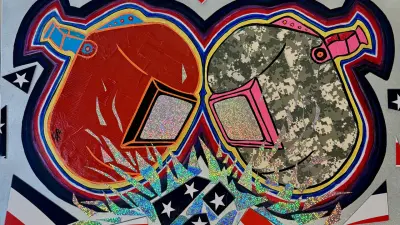A satirical stage show about the accused killer is raising questions about timing and ethics amid his ongoing murder trial

A satirical prison musical riffing off the sensational arrest of Luigi Mangione — a member of a wealthy, well-known Baltimore family accused of murdering the CEO of a major healthcare firm — has opened just six months after his high-profile detention.
Directed at the intersection of true crime, art, and journalistic boundaries, Luigi: The Musical has sparked a wave of debate about whether art can proceed before a trial has even begun
From Breaking news to Broadway‑adjacent
Mangione’s case captivated international media in early 2025, and the swift emergence of a theatrical adaptation has left some critics uneasy.
The musical is set within a stylized prison environment and blends fictionalized portrayals of his experience with surreal, darkly comedic numbers. Its arrival so soon after the arrest prompted alumnus and Toronto Star critic Joshua Chong to ask: Has art overtaken due process?
Critics weigh public memory vs. responsible storytelling
On CBC’s Commotion, Chong and fellow arts commentator Jim Provenzano dissected the show’s tone. While noting its boldness, they questioned whether such dramatization conflicts with the public’s need for clarity during a pending trial, especially when the subject cannot defend himself in court.
Is it art’s role to provoke in real time, or to wait for narrative closure?
Comedy, crime & cultural appetite
The musical’s creators lean into theatrical license, framing Mangione’s story as an allegory rather than a retelling. But skeptics argue that audiences unfamiliar with the facts may mistake satire for truth, complicating public opinion before a jury has even been seated. Producers counter that Luigi aims to bask in absurdity, not to pre-judge or influence the court of law.
A growing genre of instantaneous true‑crime drama
Luigi: The Musical is far from an anomaly. The past few years have seen numerous documentaries, podcasts, and dramatizations emerge into public view mere months or even weeks after major criminal investigations were concluded. This surge has ignited ongoing debates over whether such productions respect journalistic ethics or exploit tragedy in pursuit of cultural cachet.
Timing’s toll on justice and narrative
The show’s rapid development has raised red flags among legal analysts and ethicists. While drama can put a closer lens on societal implications, critics warn that early dramatization risks contaminating jury pools or sensationalizing suspects. With Mangione still awaiting trial, the musical occupies a fraught space between commentary and interference.
A pause or press play?
What do you think, Baltimore? Should provocative works like Luigi hold off until after verdicts are delivered? Or is the immediacy the very power that allows art to challenge public complacency? On CBC’s Commotion, the consensus remained unresolved, underscoring a larger cultural crossroad. For now, Luigi: The Musical stands as both an artistic experiment and a lightning rod, forcing audiences to reconsider what storytelling owes to real life.







